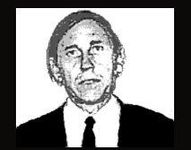Happiness Happens

James Foley
[email protected]
www.beyondthewind.com
www.mywarlove.com
Happiness Happens
by James Foley
Martin Trent remembered crashing that Iraqi stone farmhouse—past midnight, March, 2016. Inside, tapestries draped those stone walls. Four men: two at a table and two on a beat-up green sofa. Rifles? Low-voiced preparations for rocket-grenade strikes against Government forces? Like that?
No, it shouldn’t have been like that. This was supposedly a routine patrol. But back home now in Virginia, those Mideast memories still stabbed Martin’s head. And, besides, at the present moment his cell phone was ringing.
What he always remembered was the thwoomp-thwoomp-thwoomp of circling chopper blades—like some great old Pink Floyd disc. Meanwhile, one of those guys on the green sofa must have told a joke—the men’s four voices surging, boisterous and noisy. Brimming with laughter and delight in danger? Then it just all went to hell.
Martin shook his head hard—to toss memories away. Head didn’t work right now. And his phone was still ringing.
He exhaled harshly—grabbed the phone. “Yeah’ello?”
Alex Beatty’s hyper-educated alto: “Hola, dude! Eight o’clock . . . remember?”
“I’m here already, Alex—at the café.”
“Yeah, sorry. We’re running late. Look. This morning Irene met Judith Angleton. She’s in town for three days. Irene convinced her to join us tonight.”
Now Martin didn’t say anything at all. He didn’t feel anything at all. For an instant, he didn’t exist at all. Then Alex said, “Judith Angleton—remember, Martin? The sister of the girl who almost married you.”
Finally, Martin spoke: “Where’s Judith been?”
“She told Irene, ‘in California somewhere.’ By the way, Christine Richards wanted to come tonight. But not a good idea with Judith along. We all know your old feelings for Judith.”
“Yeah . . . feelings.”
“But you should see Christine more, Martin.”
“She’s a nice girl.
“She’s not just a nice girl. One day, she’ll be millions nicer. Martin, think of your future. Those special ops days are bye-bye. You were wounded out. One hundred percent disability. My advice? Marry Christine. Get fat and affluent working for her father."
“Selling half-million-dollar yachts to semi-billionaires?”
“You could do worse. And Irene says that Christine craves you.”
“Does Judith know I’ll be with you tonight?”
“I don’t think so. Irene didn’t know you’d come. Judith may be there already. Have you seen her?”
“No.”
“That’s right. She said she’d wait in her car. She didn’t want to go in alone.”
“What kind of car, Alex?”
“Hold on.”
When Alex returned he said, “Irene says, ‘Just a car car—gray.’ With two doors, Irene thinks.”
#
Yeah. The silver Merc was easy to find, parked under a live oak. But no one in the car? Was this even her car? Those wheels had to be like year ’97. So, at least she probably hadn’t married a millionaire yet. Then he saw her, unmarried or not—standing alone in the darkness of the ocean beach near the café.
The first time he’d seen her she was in the ocean, off Virginia Beach. Some Viking poet might have named her The Water Girl, The Sea Maiden. She was becalmed in her catamaran, its small sail dangling helplessly as an offshore current pushed her slowly towards Portugal. Martin, in diving gear, ducked under the pounding surf and swam out to her. He still remembered that pale-green water churning white in high-noon brightness—on that not so long-ago summer that seemed a thousand years away.
Above him, the shadow of her sailing cat had quivered in liquid light as his fins kicked him higher. Rising lungs struggled up through dim watercolor . . . his head exploding out into air dazzle. And all these hours later, he thought that the first thing he’d ever said to her was: “You lost out here, beautiful?”
She’d said something like, “You free-divin’ out here?”—her slacker Southern syllables lingering indifferently, as if speech on this earth was sweet and slow but wearisome.
“There’s no wind at all, beautiful.”
“Why keep callin’ me that?”
“Just one reason. You usually go sailing offshore with no motor . . . and no oars?”
“I thought the surf would . . .”
He’d smiled. “Unh-uh.”
Like that? Too long ago to really recall. He’d towed her in—that much he remembered. The catamaran’s hulls knifed through the water: no resistance, no real bow waves . . . until near shore the big surf had grabbed them, tossing them high and onto the sand against each other. She’d helped him up.
Yeah, he remembered.
#
And now here at this seaside café she was looking out at the same old ocean as Martin said, “Judith”—hoping that when she turned she’d turn smiling.
No smile. Same face, though—there in the manic flicker of the café-front neon. Dark hair framed a broad pale forehead. Eyes wide-slanted: miming some Cossack horseman’s sister’s black eyes? All images dredged up from old memories—made real again on this unexpected night.
And that same look of abnormally sensitive awareness. Always thirsting? But more quietly—not her sister’s agitated, incessant anxiety.
“After twelve months,” he said now hoarsely.
“No, thirteen,” she said.
“So, you do remember.”
But immediately she was moving away towards her silver Mercury.
“Wait . . . please,” he said.
“I've got to go now. I didn’t expect this.”
“Judith! Stay a minute. Just five minutes. You've got to give me that after twelve months.”
“Thirteen months.”
“That's worse.”
The moon was down and the night air was heavy and growing damp. A thick, chilly mist was beginning to solidify into a drizzle. Taking her hand, he ran with her into the shelter of the café’s awning as it began to rain. But she said, “I've got to go. I don’t want to stay here. I can't talk to you. It just brings it all back.”
Then suddenly she was pointing out over dark water. “That last night we were together: little offshore lights, same as now.”
Yes. Those small shimmering lights of the nearby yacht club glowed softly. Piers and finger piers shone between slips. Silhouette land: tinkling masts and antennae standing out dark against the less dark sky. Her voice came back dreamy—bitter:
“What really got to us was that you didn't even come to her funeral!”
“I was overseas, Judith. I never knew.”
“I've got to go!” But he stopped her, holding her arm and taking his wallet out.
“Wait. Let me show you something. Please. Just a second.
“Do you see this photograph, Judith. It’s been halfway around the world this past year.”
“Where’d you get that?”
“Erica had it. I took it. She didn't know.”
“Damn you! You've been carrying that photo all year? And not hers? My sister died for you and you didn't even have her picture? Just my picture!”
“Judith, you know it was always you. And you always knew that—from day one. And you liked me too. I’m sure of it. Then you put me on to Erica because she was disturbed and had nobody. And when I stayed focused on you, you felt guilty—as if you’d taken me from her.
“It was the opposite, Judith. Because you were so concerned about Erica, you wanted her to have me. It was Erica who took you away from me, because as long as Erica wanted me, you wouldn’t be with me.”
A smile—the shy kind. “You tellin’ me you were that crazy about me?”
“Yeah—exactly.”
But she turned away again. “All right. That’s no news flash.”
“Don’t belittle it. Most people would give anything to be wanted the way I wanted you. And you knew. Why did you keep pushing me on to her?”
“Because she needed you.”
“And you didn't?”
“Damn you. You broke her heart!”
“That shouldn't make you stop telling the truth. You know what was between us. You’ll never forget.”
“You dropped her. You shattered her.”
“It was a mistake from the start. She was sick, Judith. In some kind of deep depression. Emotionally, it was way over my head.”
“Yeah. That wouldn't make it deep, Martin.”
He smiled. But at that moment, as Alex Beatty’s BMW M5 rolled into the café’s parking space, Martin suddenly felt rushed. His voice tightened as he said, “Don’t throw this away. It can be ours now. Days and nights—oceans, seashores warm under the stars. Don’t lose it again. Believe me, Judith: happiness happens.”
But she seemed wholly doubtful. “I might believe in it if I knew what it was.”
“Trust me.”
Her voice wavered—vague, listless: “Your reckless life scares me.”
“I'll give that up.”
“You can't. You love the edge. You'll always be there. Never with me.”
“That’s over, Judith. I’m out of the military. Stay with me and I'll never need it. Alex and Irene are here now. They’ll tell you.”
She seemed to hesitate. “Is that what you're promising me?”
He nodded, wondering if he really was. And she, now at the abyss of trusting, kept her stare locked on his—Mexican standoff of the heart.
ut as he turned away for an instant to greet Alex and Irene, he heard Judith cry, “Look, I'm going. I can’t see them now.” And she was already rushing to her Mercury, racing away.
For Martin now, reaching and holding her arms was an action of seconds. But it seemed to move through gigantic emotional dimensions as he whispered, “Judith, we're in love.”
But a kitten that you love and maybe even loves you can be moody, can scratch. Impulsive, she won't hold still, and you cannot stroke her. She hisses and lashes out at you if you come too close. Like such a brave kitten, Judith glared at Martin, her dark eyes flashing as Irene and Alex approached.
“Judith,” Martin went on,“let's be with each other for Erica's sake. She could never be happy unless you're happy. We owe Erica that. The three of us will always be together. And Erica's memory will live with us forever.”
Judith had uttered an anguished outcry. She was trying to wrench loose. But in an amazingly sudden reversal she collapsed against Martin, holding him close and saying, “You're promising that: the two of us and Erica? Always?”
“Absolutely I'm promising you. I swear it.”
“Then I won't swear, but I'll stay with you, Martin: with you and Erica.”
Martin glanced up at Irene's and Alex's faces. Like a look of wonderment and contentment? But the ringing in Martin's ears was like angels whispering the words: “Happiness happens.”
James Foley
[email protected]
www.beyondthewind.com
www.mywarlove.com
Join Qfeast to read the entire story!
Sign In. It is absolutely free!

